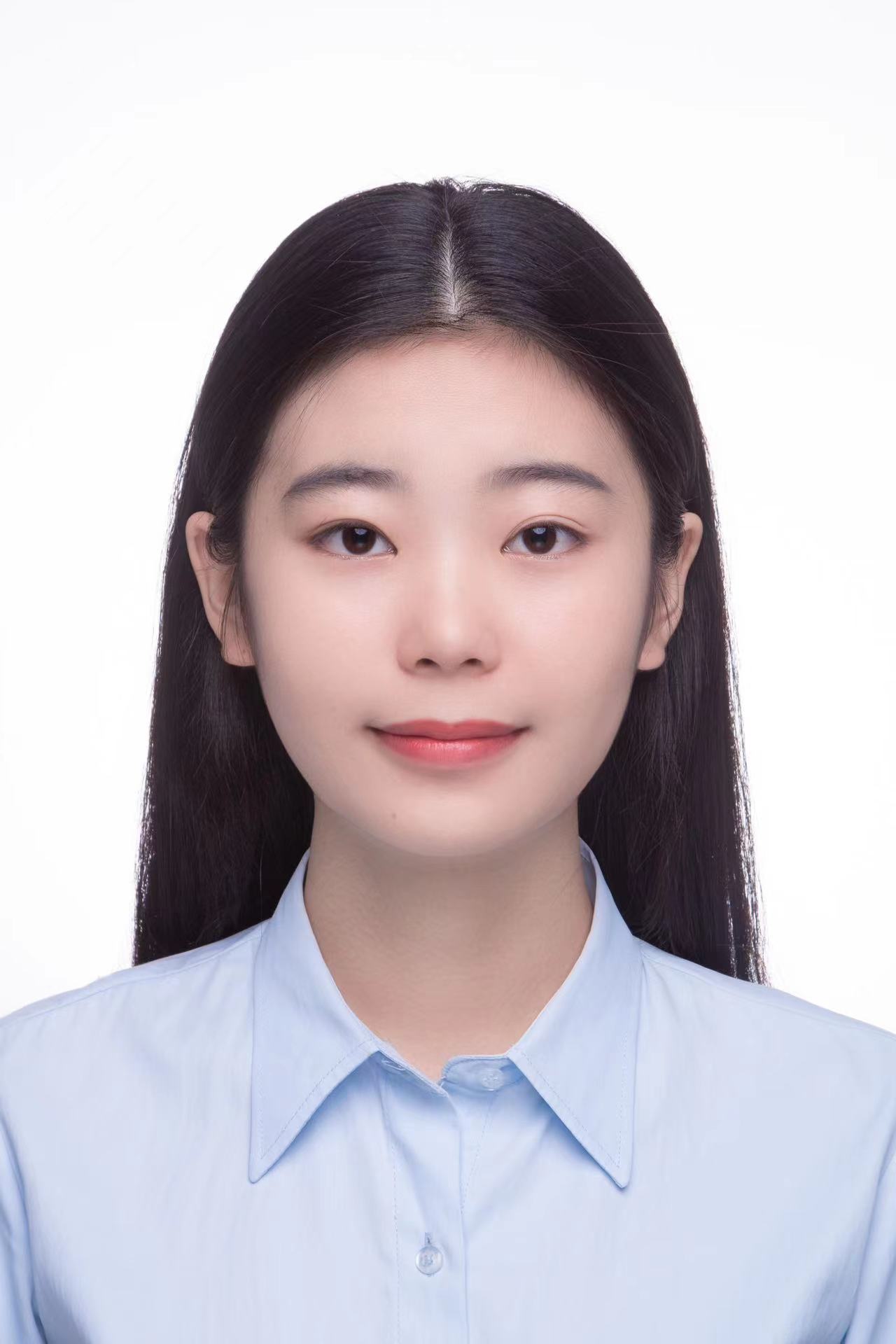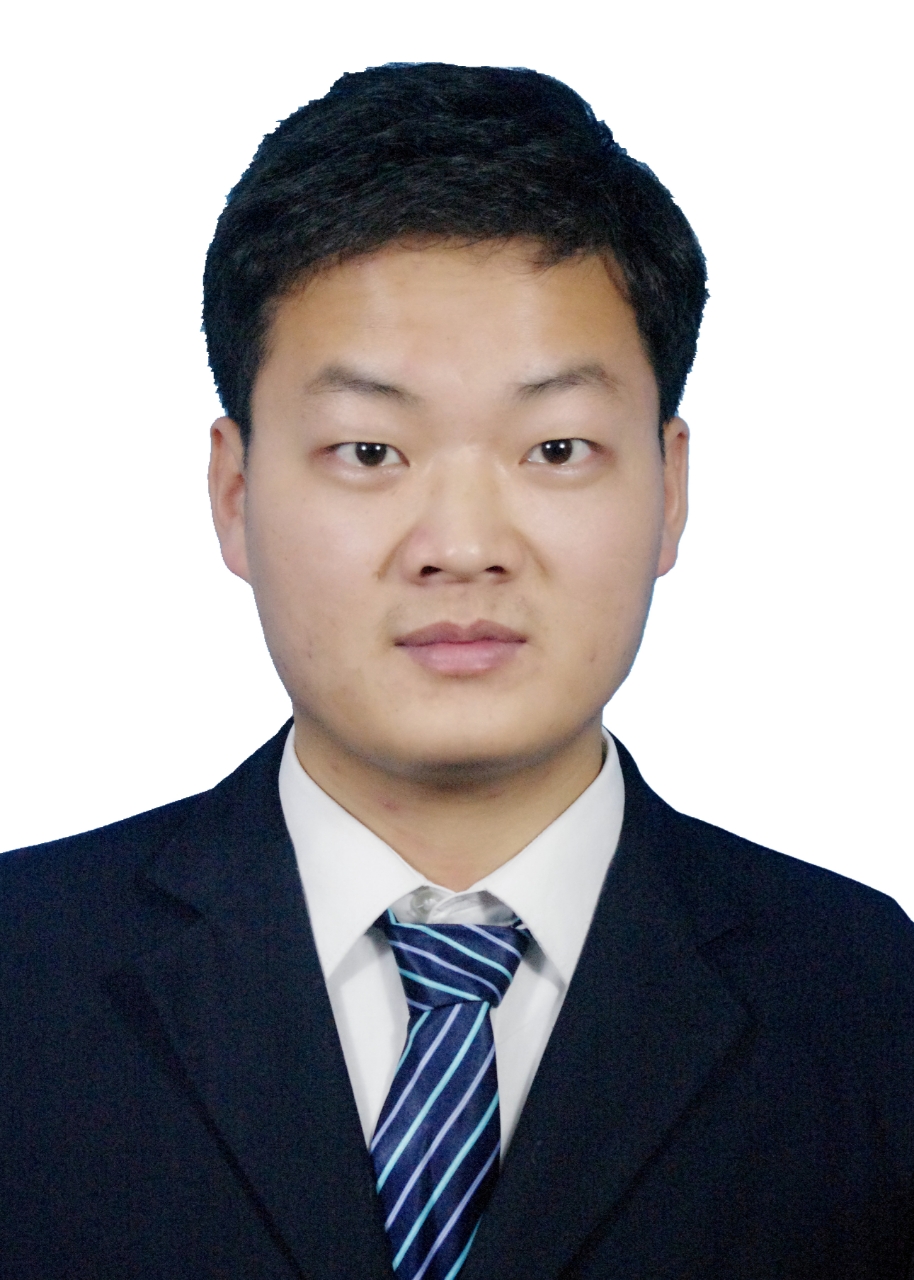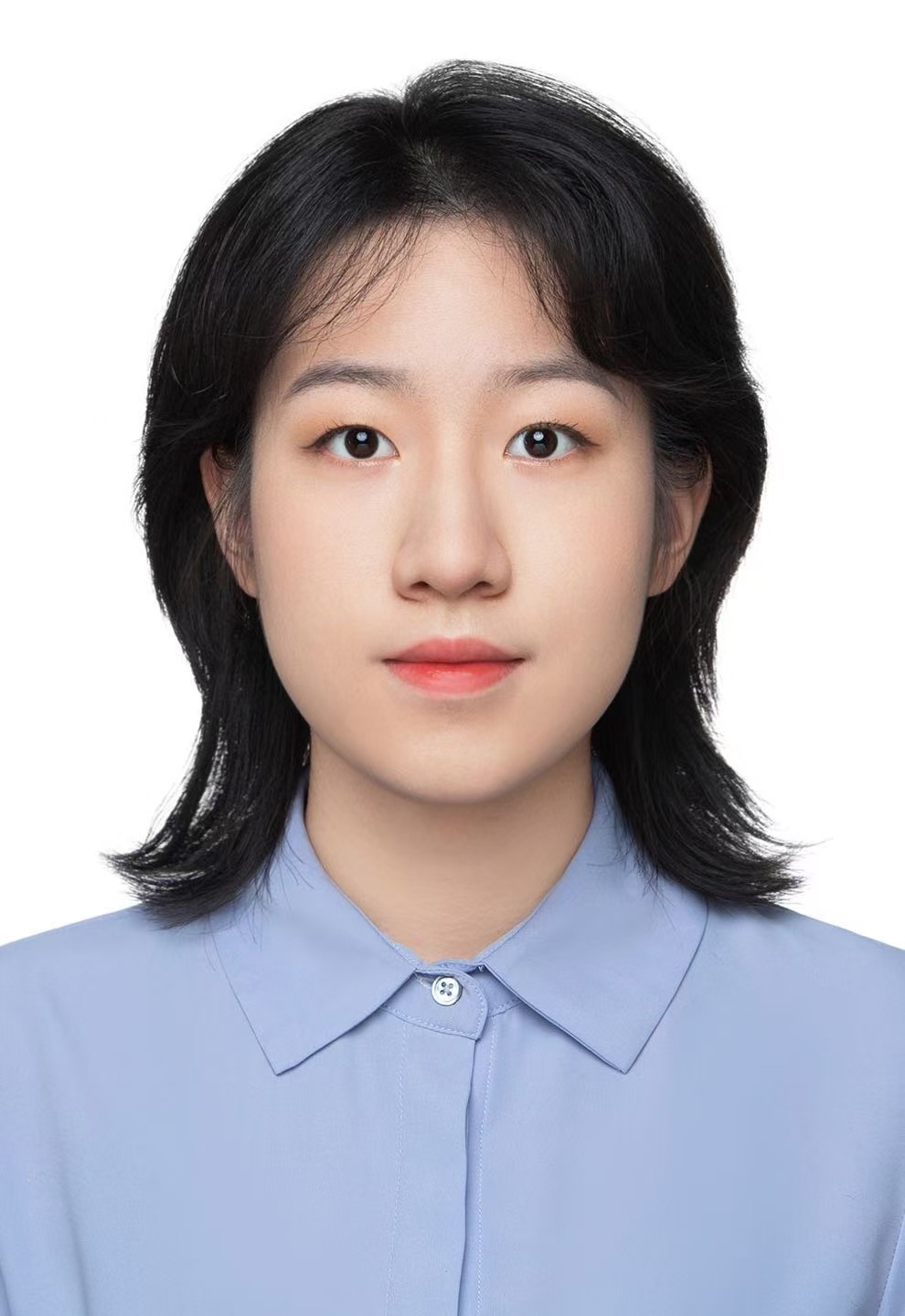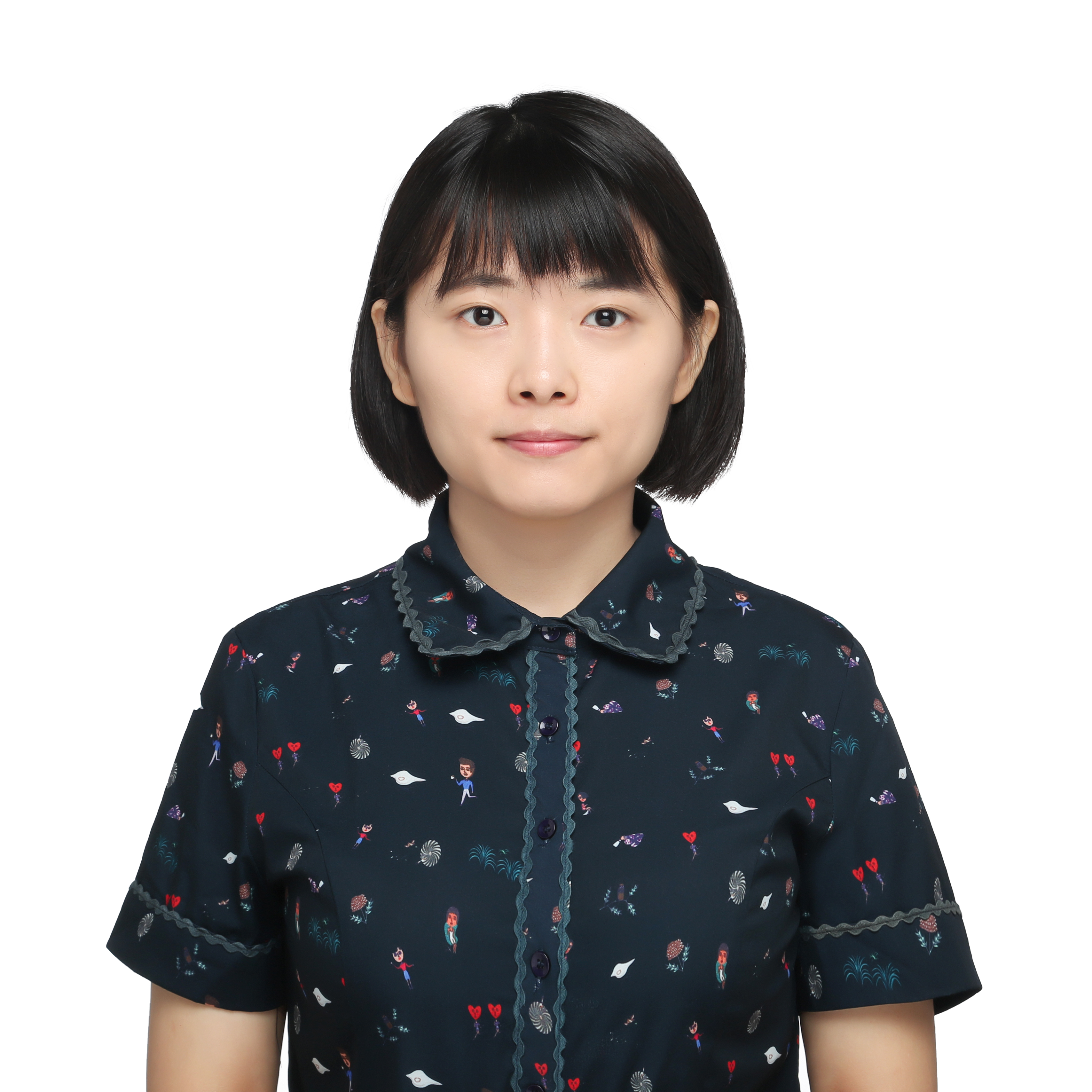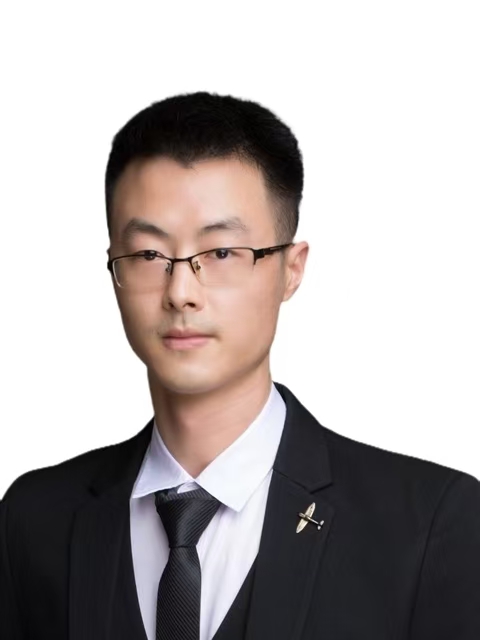News
Here you see our lab activies, including attending an academic conference, presenting their research and lab outing …
2025
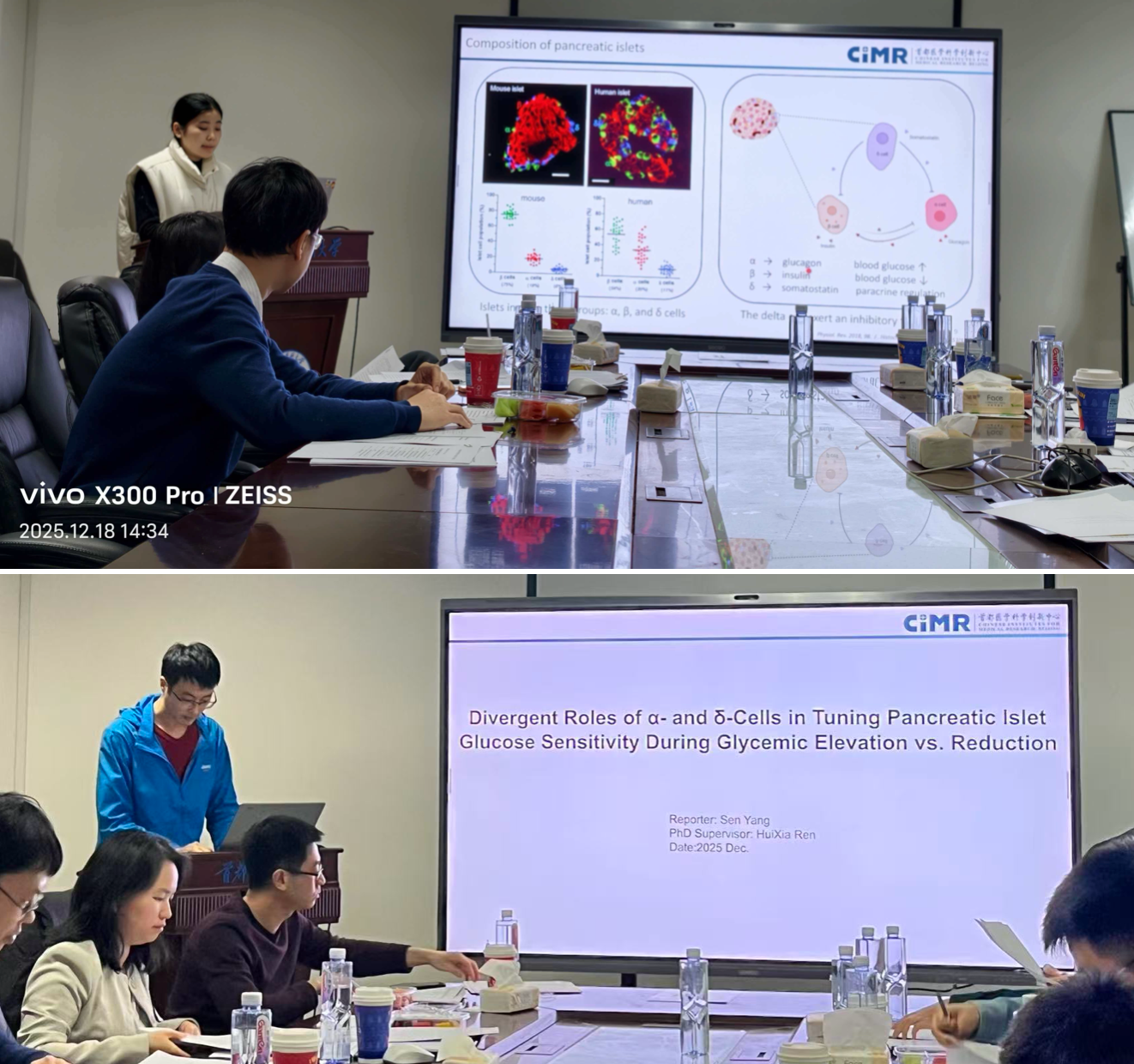
Dec. 18, 2025, PhD candidates Wang Xuejiao and Yang Sen successfully defended their thesis proposals at the Ren Huixia Laboratory. Wang Xuejiao’s research topic is titled ‘The function of pancreatic delta cells in health and diabetes: early links to reduced endogenous somatostatin release’. Yang Sen’s thesis proposal focuses on the divergent roles of α- and δ-cells in tuning pancreatic islet glucose sensitivity during glycemic elevation and reduction. These defense sessions marked a key milestone in their doctoral research journeys, with their proposed studies promising to provide valuable insights into pancreatic cell biology and diabetes-related mechanisms. Congratulations!
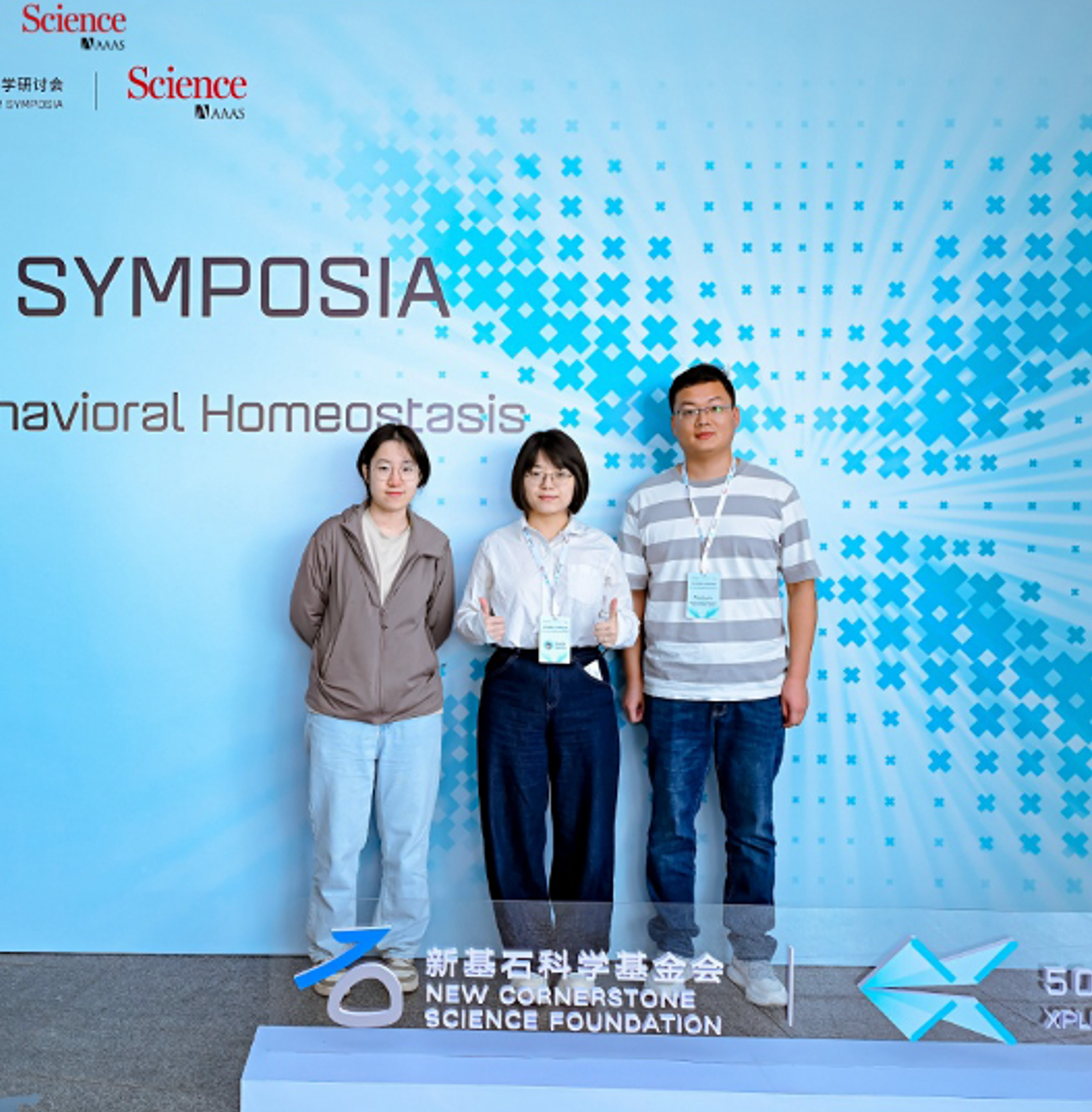
The “Brain, Body & Behavioral Homeostasis” conference was held in Shenzhen from December 4th to 7th, 2025. Homeostasis is the prerequisite for life and health. Abnormal regulation of innate behaviors such as defense, eating and sleep leads to impaired homeostasis. Leading experts shared the latest scientific insights and technology development in sleep homeostasis, brain control of body homeostasis and brain-body interactions. In an open and exploratory academic environment, the speaker and the participants engaged in constructive and in-depth discussion, jointly expanding the cognitive boundaries of this cutting-edge field. Lab members Dr. Huixia Ren, Dr. Zhenchao Fu and student Yawen Deng attended the conference. Yawen introduced her study in poster. Dr. Huixia Ren delivered a talk titled: Hyperglycemia to euglycemia shift pancreatic islets rhythmicity in vivo, impairment in diabetes.
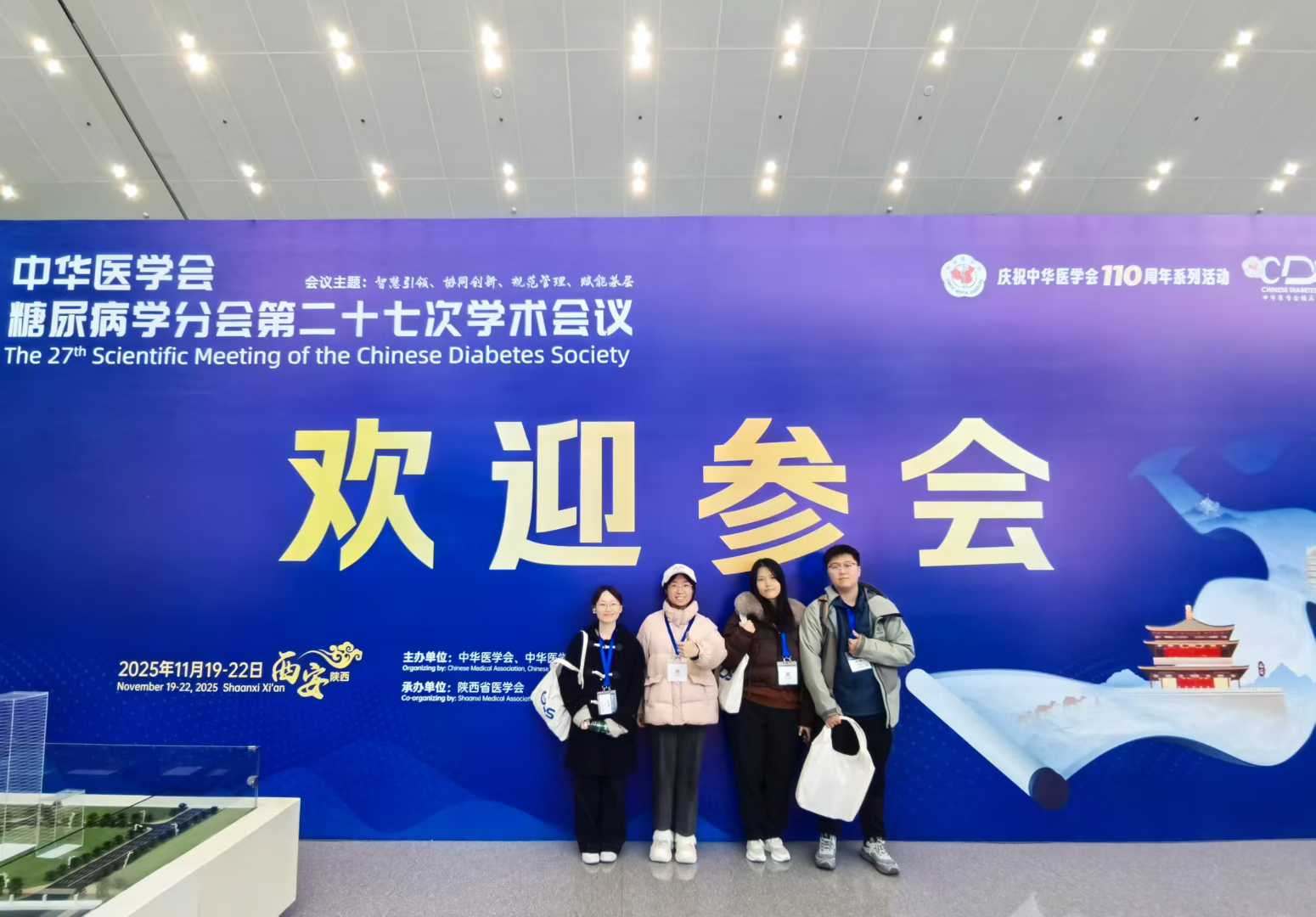
From November 19 to 22, 2025, Dr. Liu Zhimei and Li Dan attended the 27th Academic Conference of the Chinese Diabetes Society, which was held in Xi’an. Focusing on the latest research advances and clinical practices in the field of diabetes, the conference covered a wide range of topics including basic research, clinical application, as well as the prevention and management of diabetes and its complications. Participants shared cutting-edge progress in diabetes prevention and treatment.
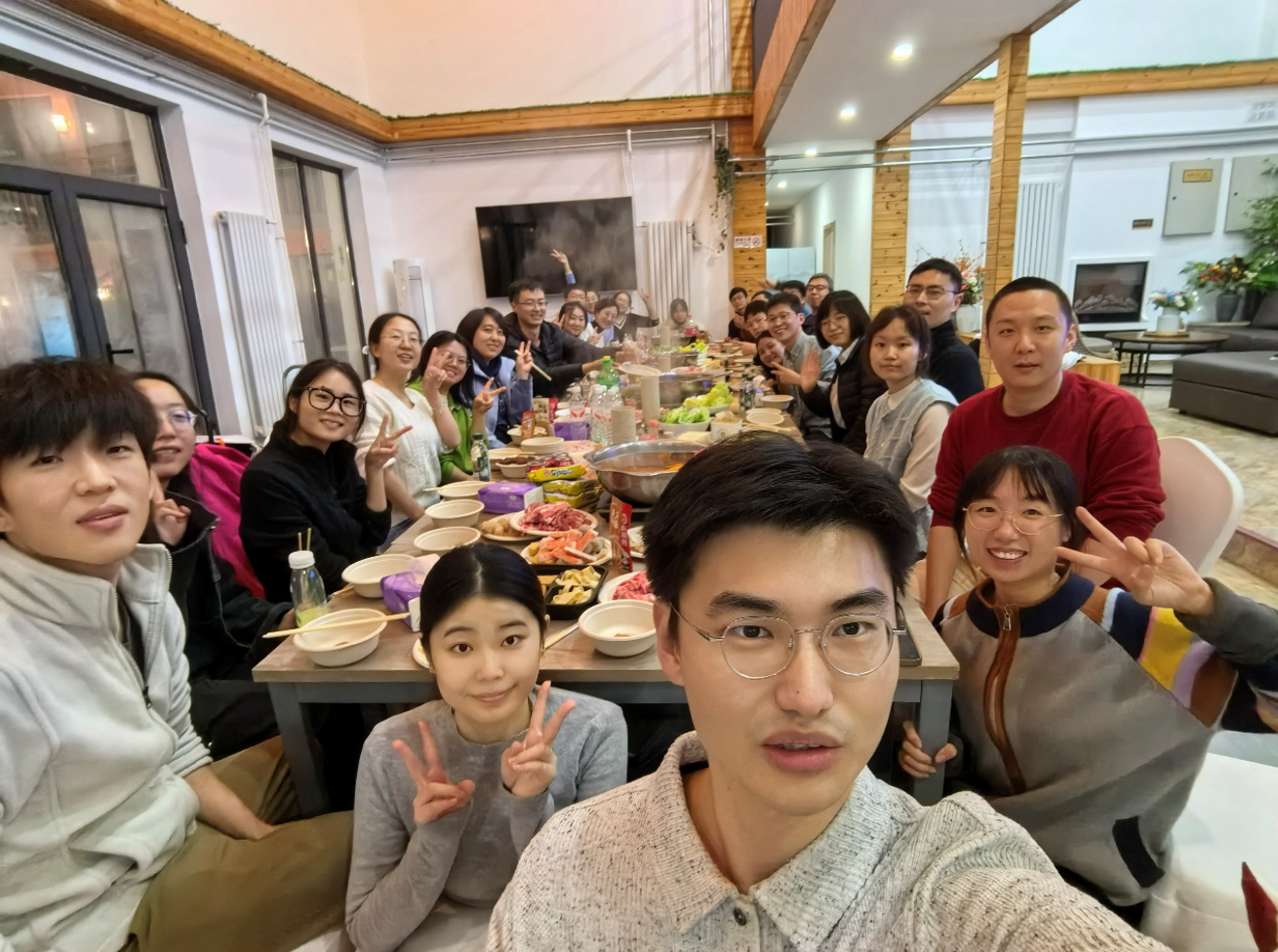
Beijing, Nov. 7-8, 2025-To strengthen inter-lab collaboration and take a break from research, members of Ren Lab and Wu Zhaofa Lab at the Institute of Genetics and Developmental Biology, Chinese Academy of Sciences, went on a two-day autumn trip to Qinglong Gorge in Huairou District, Beijing. The group walked along canyon trails, admired the autumn scenery with glistening water and colorful foliage, explored the nearby Great Wall, and tried the thrilling bungee jumping. On the first night, they enjoyed a hot pot feast and a cozy karaoke session together. This trip helped researchers unwind, deepen mutual understanding, and lay a solid foundation for future interdisciplinary cooperation.
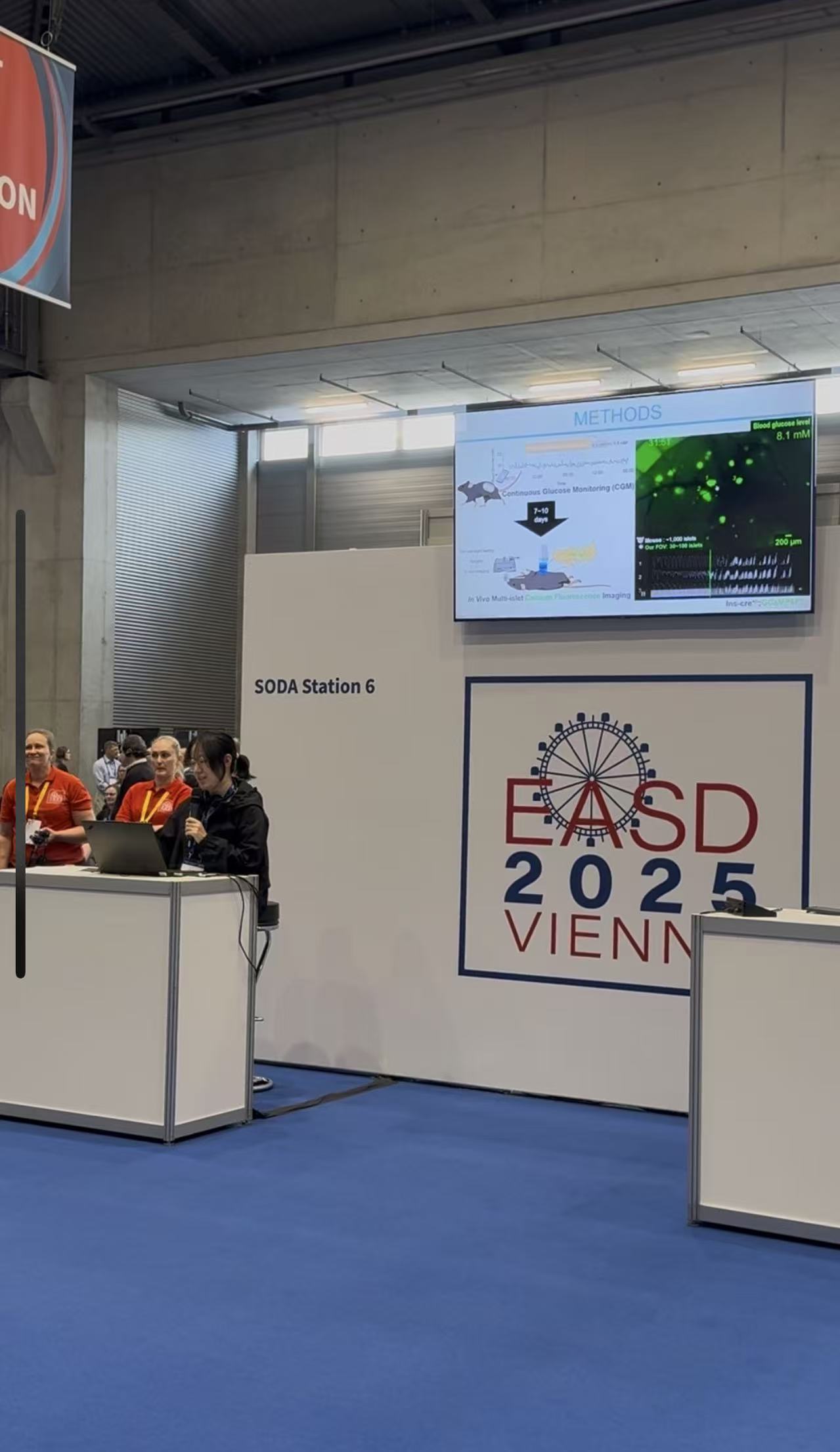
Vienna, Austria – September 15–19, 2025. The Ren Laboratory participated in the 61st Annual Meeting of the European Association for the Study of Diabetes (EASD), held at the Vienna Congress & Convention Center. The congress brought together almost 14,000 international researchers, clinicians, and healthcare professionals to exchange the latest advances in diabetes research and care.
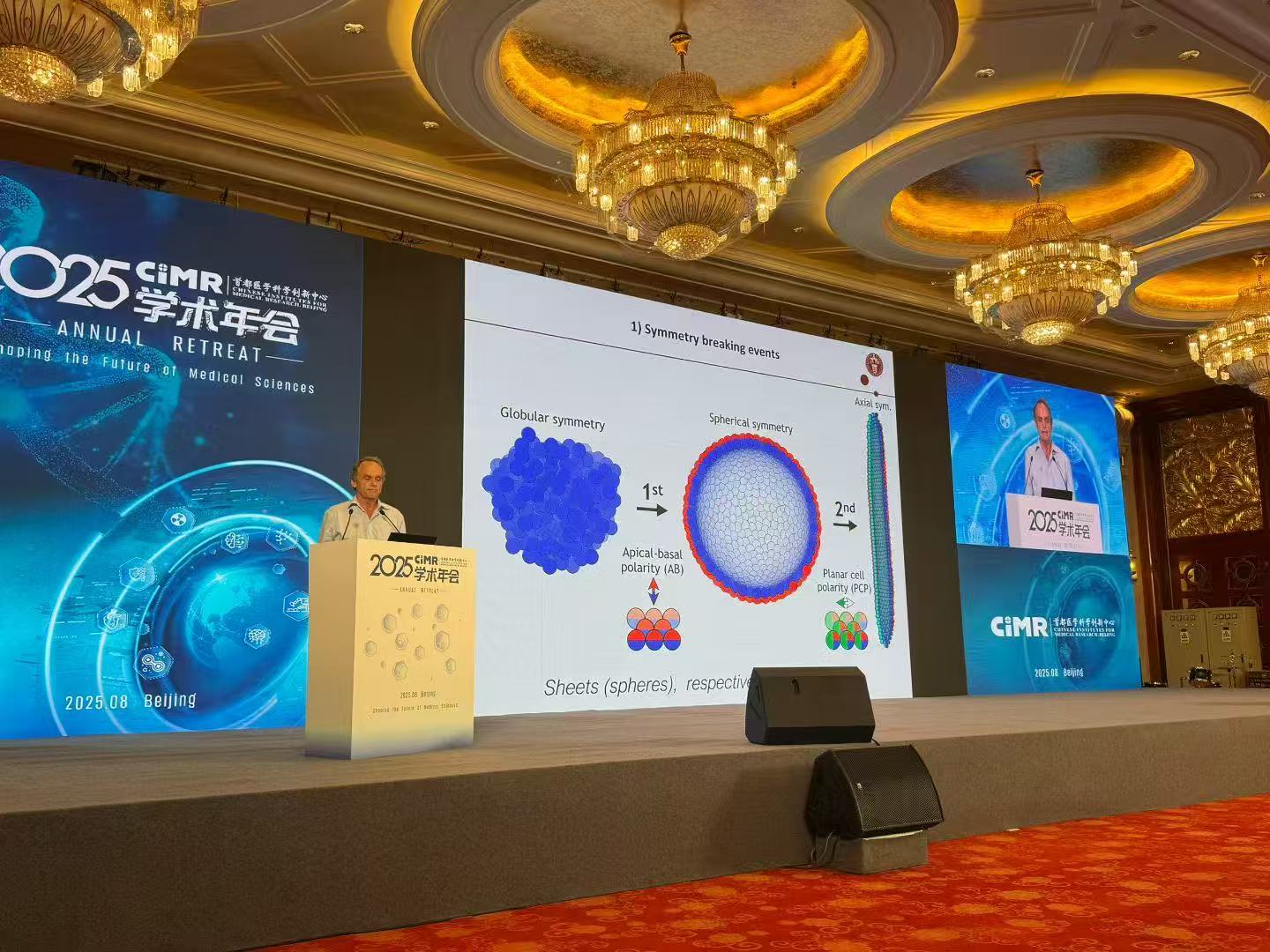
CIMR held the 2025 Annual Retreat from August 27 to August 29, 2025, at Sunshine International Conference Center, Beijing. Huixia Ren and all lab members attended the annual retreat. They prepared posters to communicate with the teachers about their research results. Prof. Kim Sneppen was invited to gaved an presentation titled “A rule based physical model for morphological diversity”. This retreat strengthen interdisciplinary cooperation and exchanges in biomedicine.
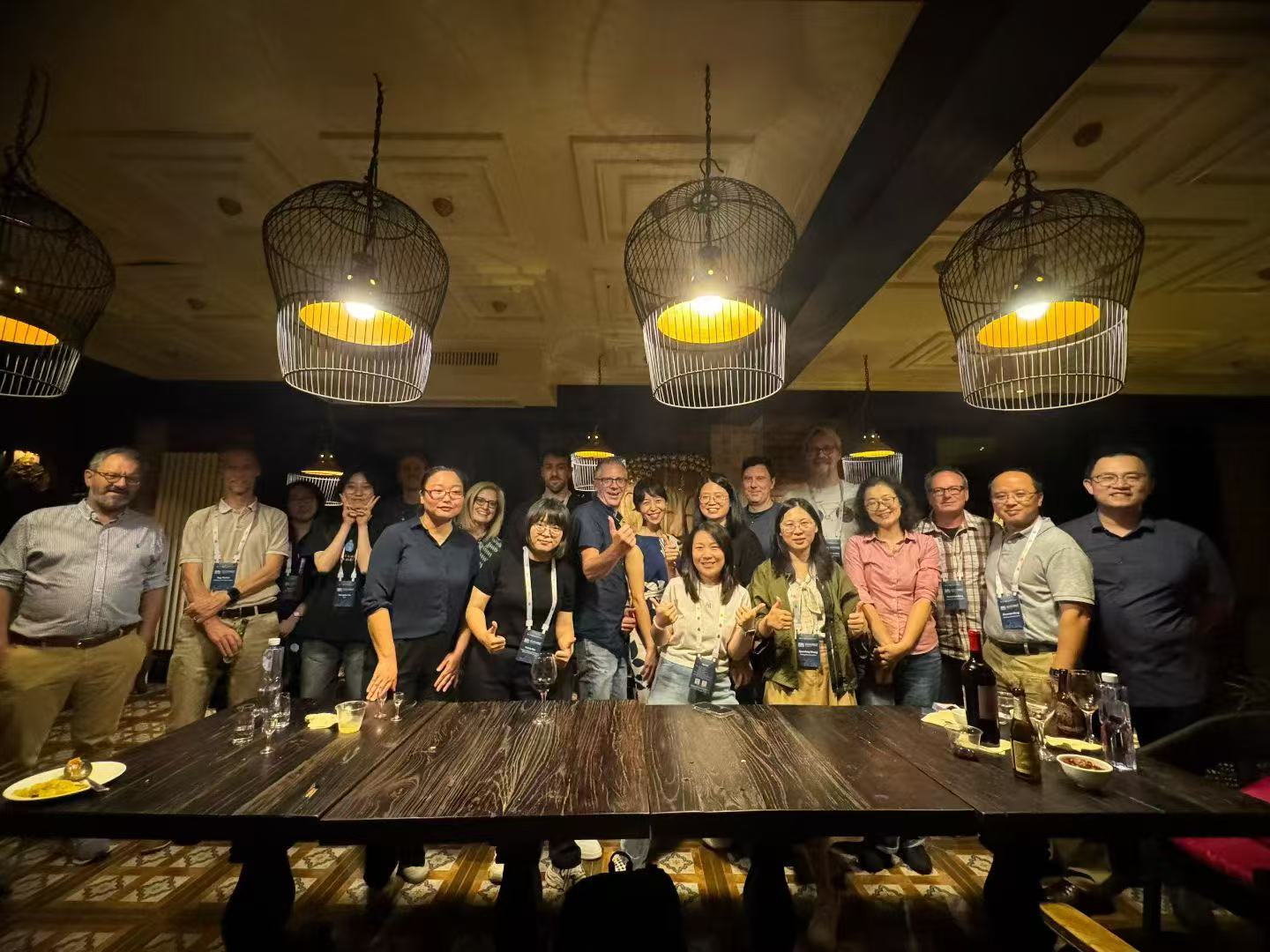
From August 26–28, 2025, we co-organized the “Digital Life Forum: Trans-Scale Imaging and Integrative Islet Biology” in Huairou Science City, Beijing. The forum brought together global experts to discuss innovations in imaging and islet biology, with a focus on diabetes research.
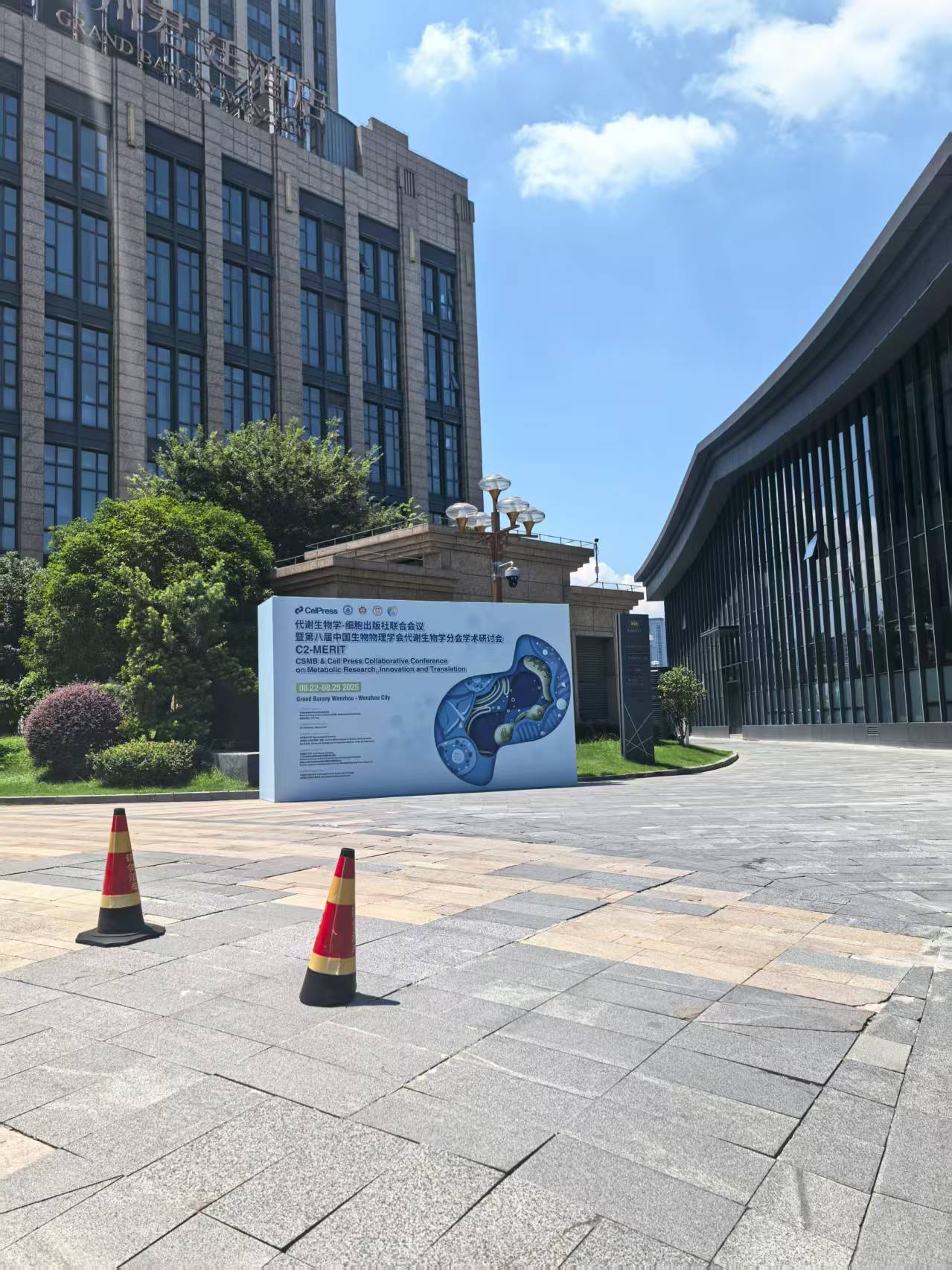
On Aug. 22th, 2025, “Metabolic Biology - Cell Press Joint Conference & The 8th Academic Symposium of the Metabolic Biology Branch of the Chinese Biophysical Society” was successfully held in Wenzhou, Zhejiang from August 21st to 25th, 2025. Dr. Huixia Ren was invited to attend and gave a sharing report titled “Hyperglycemia to euglycemia shift pancreatic islets rhythmicity in vivo, impairment in diabetes”, while her students Sen Yang and Xuejiao Wang also attended the conference. They all engaged in academic exchanges with domestic and foreign peers to enhance the laboratory’s research influence in the field of metabolic biology.
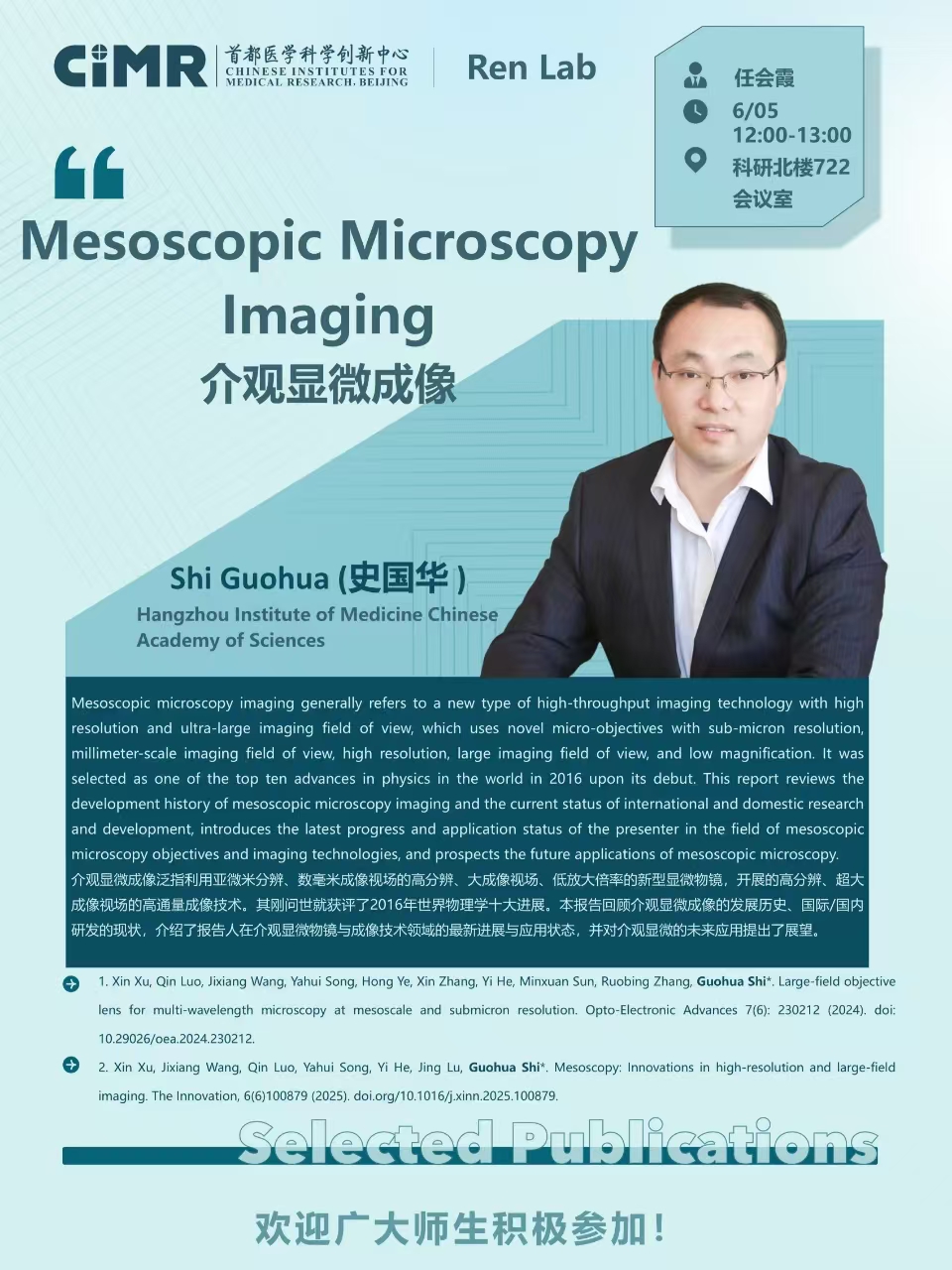
Beijing, June 5 – We hold a seminar on “Mesoscopic Microscopy Imaging” featuring Dr. Shi Guohua from the Hangzhou Institute of Medicine, Chinese Academy of Sciences. His talk reviewed the development and current status of this cutting‑edge high‑resolution, large‑field imaging technology, which was named one of the top 10 physics breakthroughs in 2016. Dr. Shi presented his latest research on multi‑wavelength mesoscale objectives and imaging applications, and discuss future prospects.
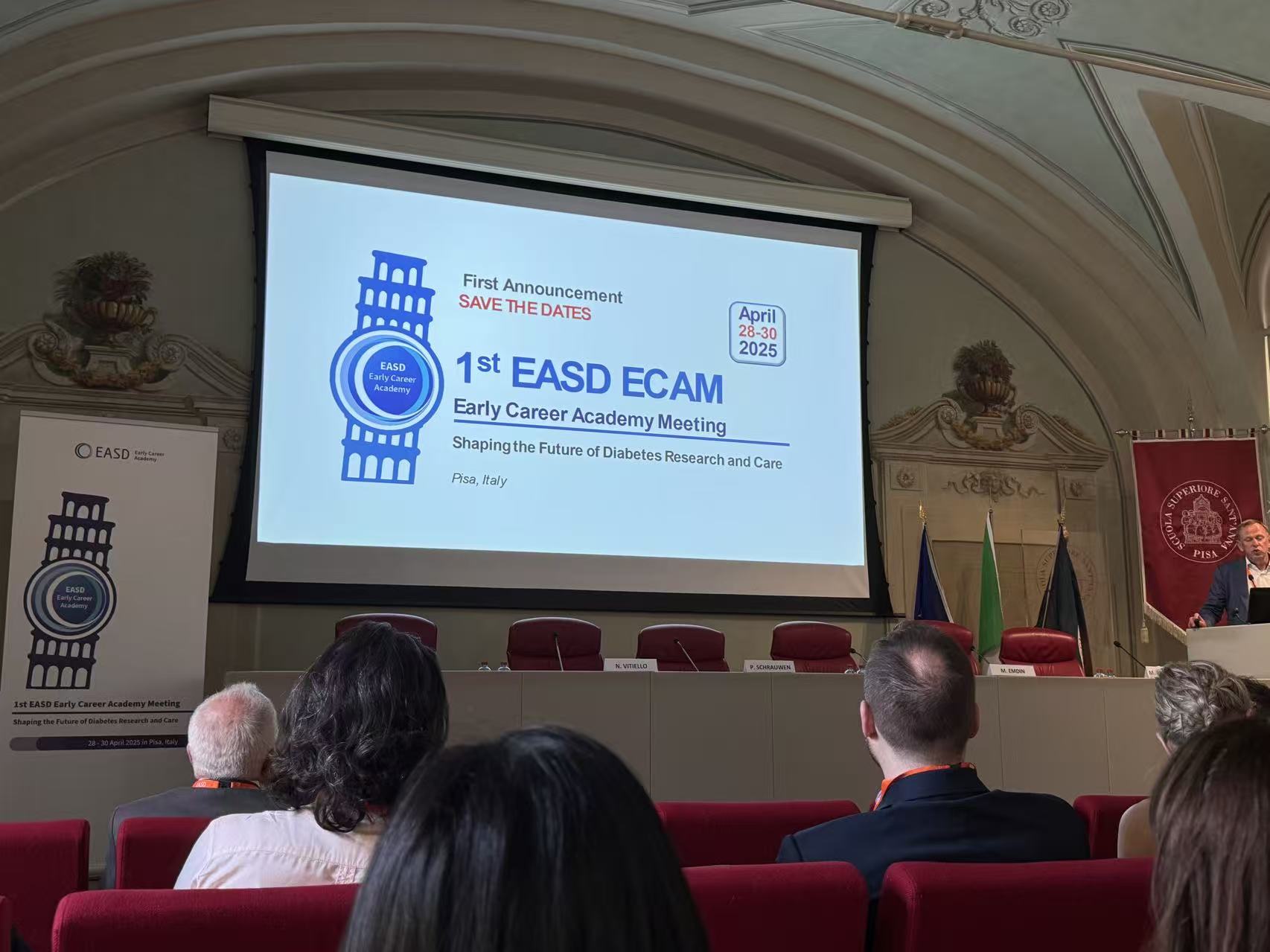
Pisa, Italy – The European Association for the Study of Diabetes (EASD) host its 1st Early Career Academy Meeting (ECAM) from April 28 to 30, 2025. The event aims to shape the future of diabetes research and care by fostering collaboration among early career scientists and clinicians. Participants are engaged in cutting‑edge discussions, network with leading experts, and explore innovative approaches to tackling diabetes. This first edition in Pisa was a vibrant platform for sharing research, building partnerships, and inspiring the next generation of diabetes researchers.
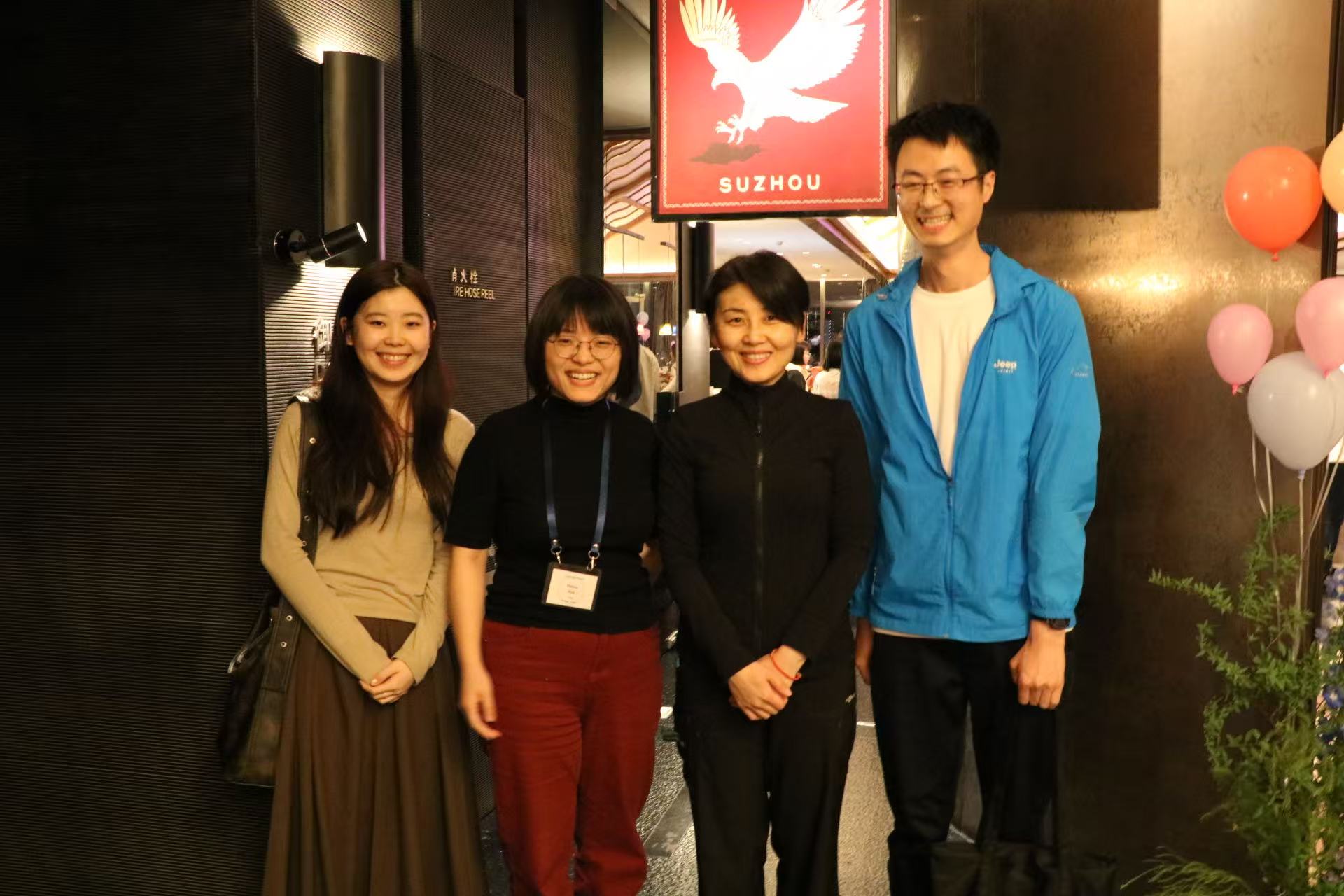
“Membrane Proteins: Physiology to Pharmacology” conference successfully took place at the Cold Spring Harbor Asia Academic Center in Suzhou from April 14th to 18th, 2025. The conference attracted top scientists and researchers from around the globe to explore the physiological functions and structural characteristics of membrane proteins. Lab members Dr. Huixia Ren, Xuejiao Wang and Sen Yang attended the conference. We exhibited our laboratory’ past and ongoing studies via poster. Xuejiao Wang and Sen Yang introduced the association between the Ca2+ signal and islets’ function to the audience who are interested in our poster. Dr. Huixia Ren contributed an oral presentation.
2024
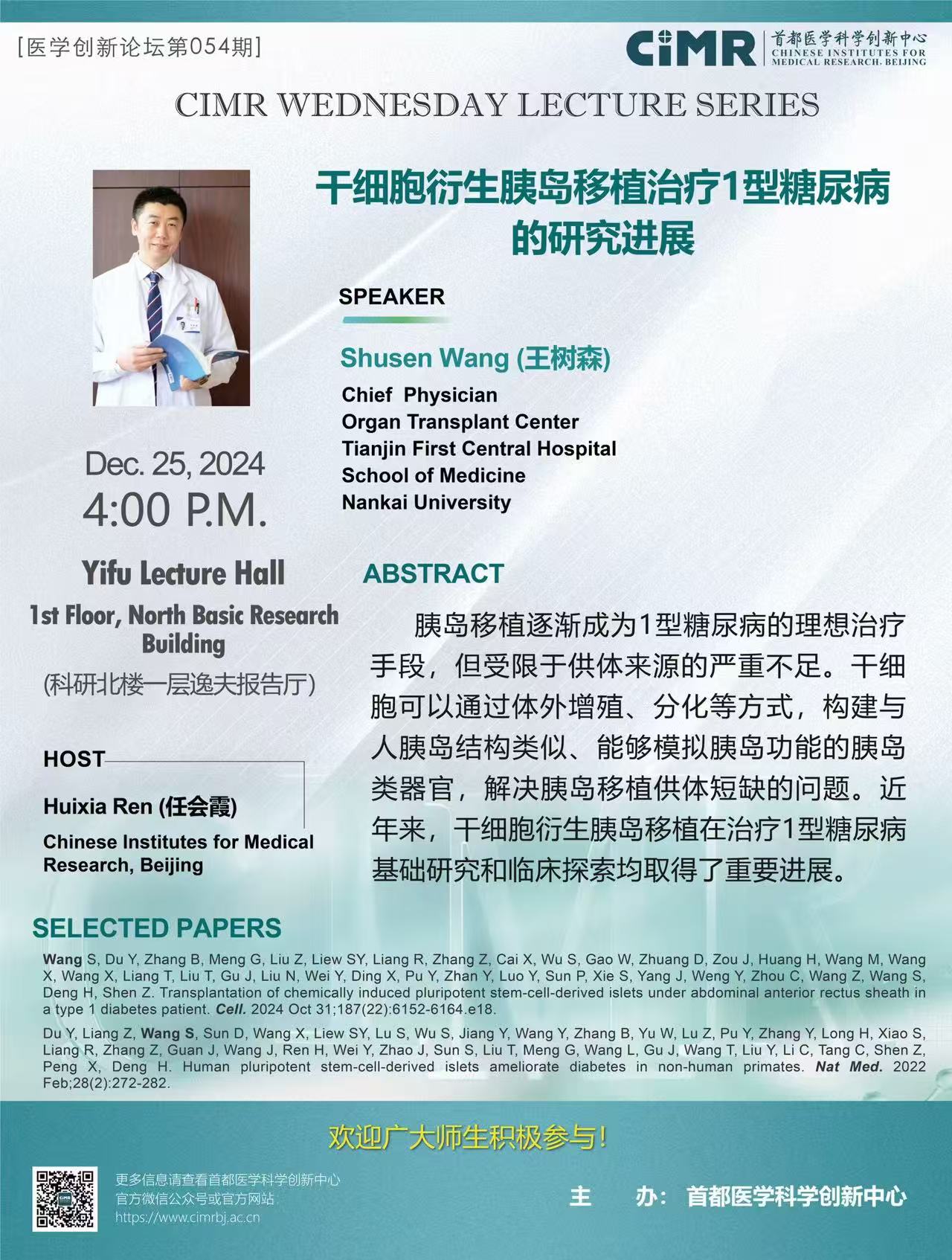
December 25, 2024 – We invited Chief Physician Shusen Wang from Tianjin First Central Hospital. Dr. Wang presented recent advances in stem cell‑derived islet transplantation, a promising therapy for type 1 diabetes that addresses the shortage of donor islets. The talk highlighted research published in Cell and Nature Medicine, demonstrating how lab‑grown islets can restore insulin function in humans and primates.
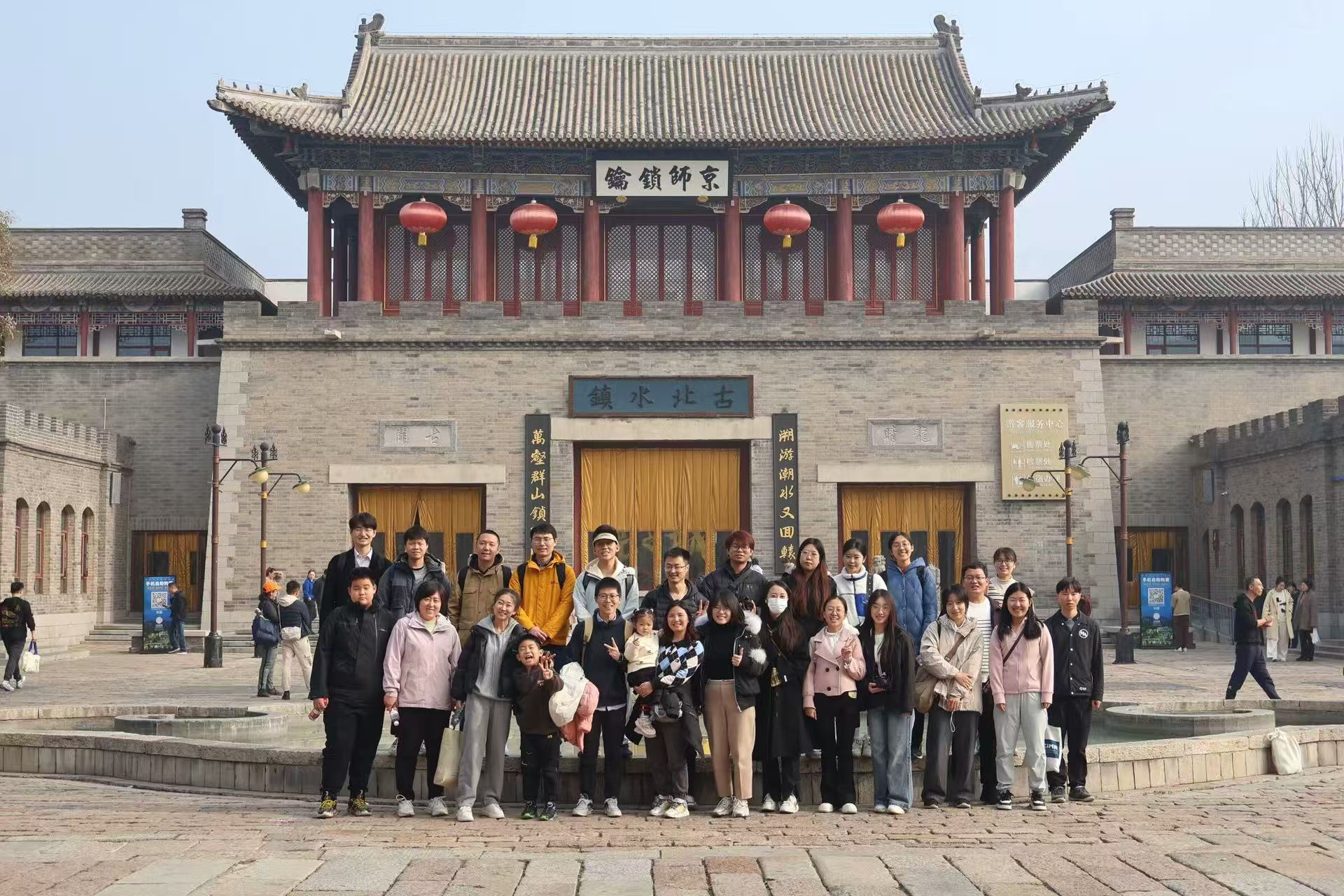
Beijing, Nov. 4, 2024 – Lab members from Ren Lab and the Wu Zhaofa Lab at the Institute of Genetics, Chinese Academy of Sciences, embarked on a joint autumn trip to Gubei Water Town. The group explored the Simatai Great Wall, experienced traditional folk activities such as tie‑dyeing, and enjoyed the picturesque autumn scenery. The outing provided a relaxed setting for scientists from both labs to interact, share ideas, and build new friendships. The event strengthened interdisciplinary connections and fostered a spirit of collaboration beyond the laboratory.
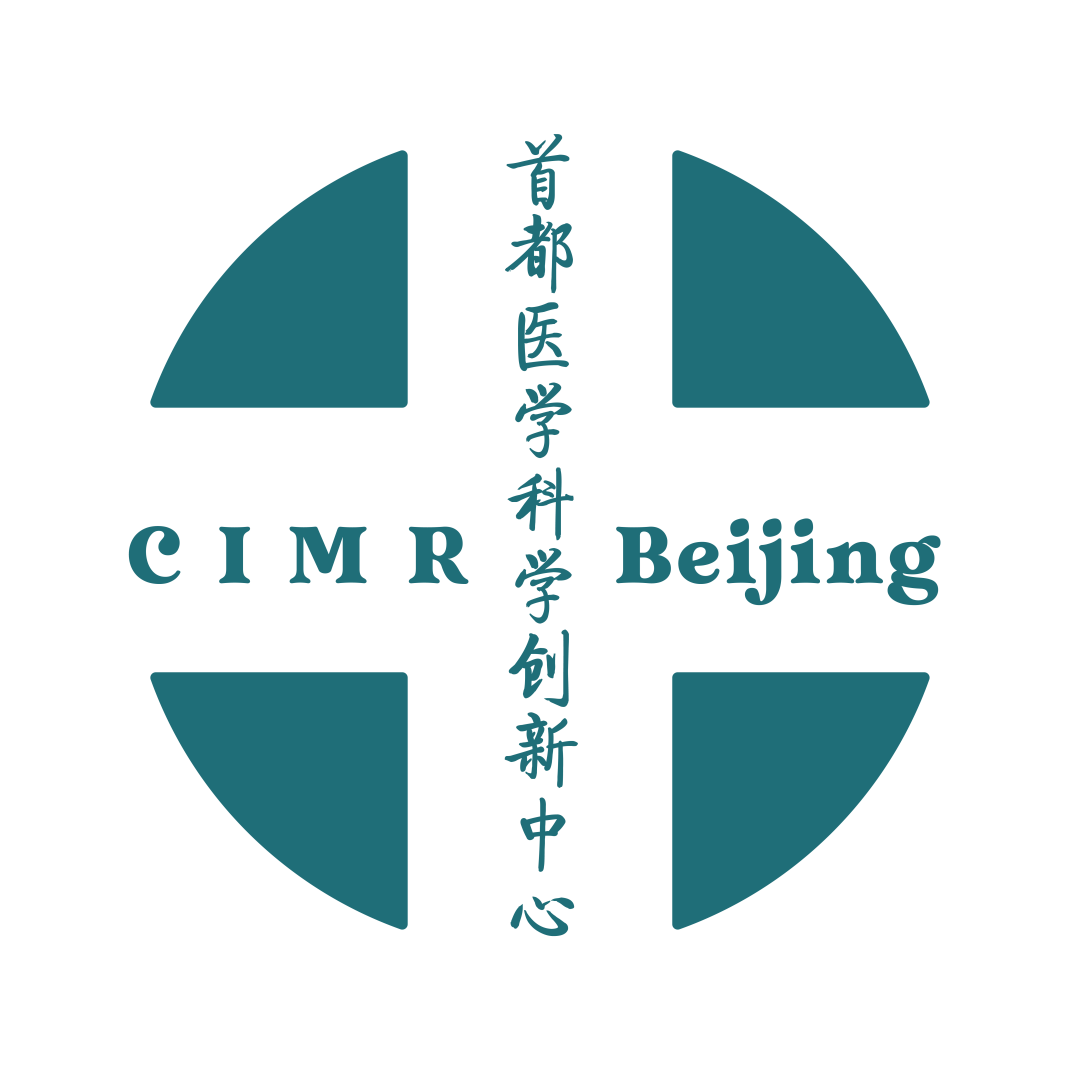
On July 1st, 2024, RenLab started at CIMR (Chinese Institutes for Medical Research, Beijing). Welcome to join us!
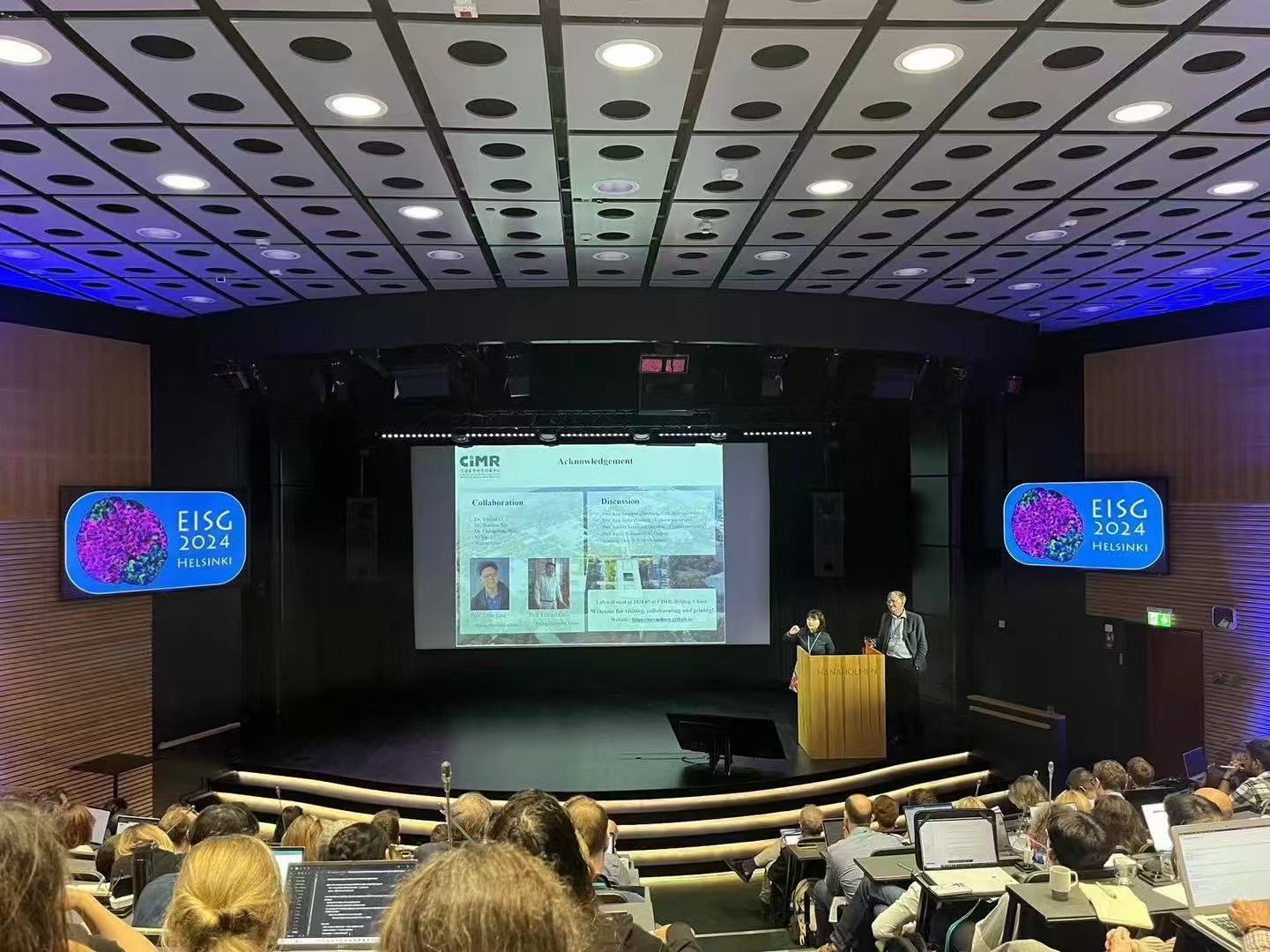
On June 18h, the European Islet Study Group 2024 Meeting was held in Helsinki, Finland. Dr. Huixia Ren attended the conference with an invited talk. The meeting brings together 250 researchers from all over the world. And everyone enjoy the white northern summer nights!
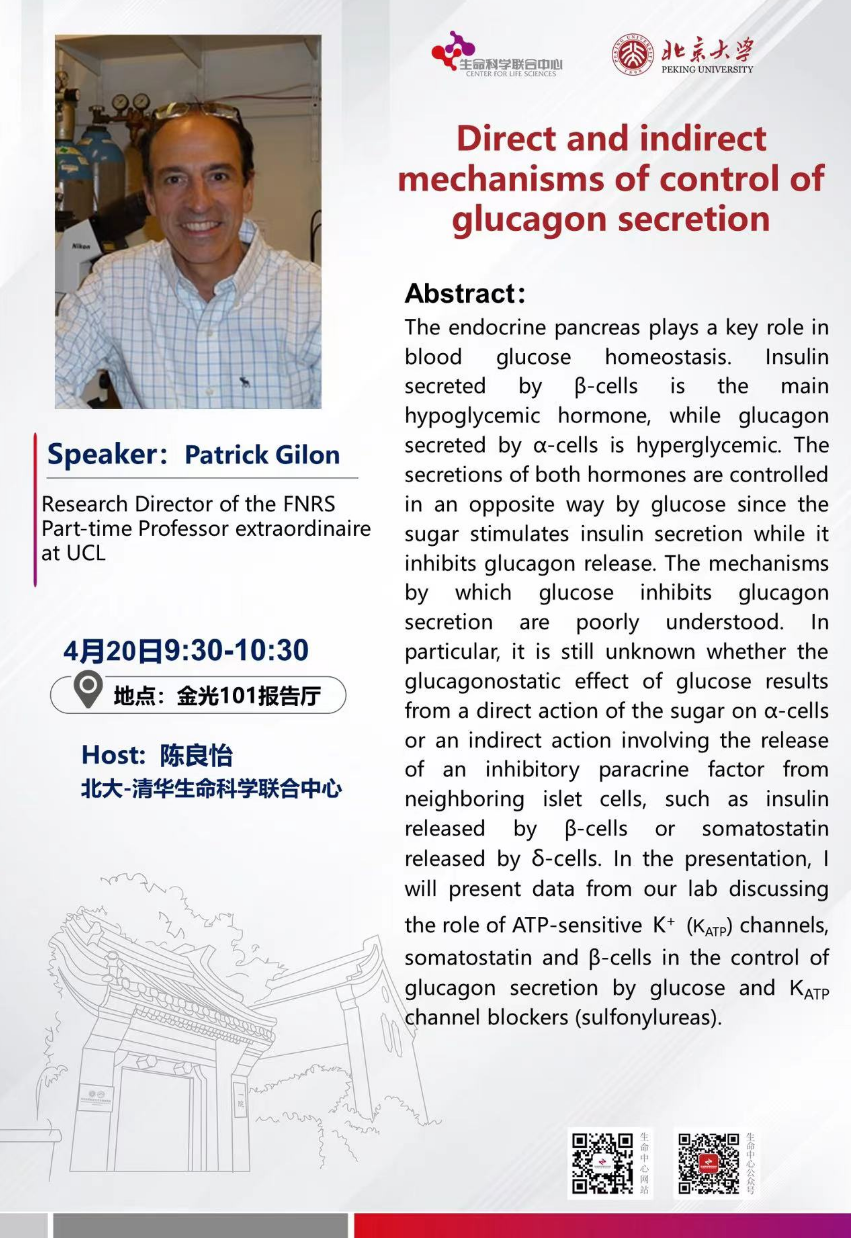
On April 19th, 2024, Prof. Patrick Gilon from Biomedical Sciences at the Catholic University of Louvain (UCL) visit Chen Lab and Tang Lab at Peking University. During his visit, he gave a seminar about “Direct and indirect mechanisms of control of glucagon secretion” and had lunch with students. He is the Director of Research of the Fonds National de la Recherche Scientifique (Belgium). His main interests are to study stimulation secretion-coupling of insulin- and glucagon-secreting cells and interactions between the different cell types of the endocrine pancreas in normal and physiopathological conditions linked to diabetes. One major part of his research was to study the mechanisms of control of the free Ca2+ concentration in various subcellular compartments. He has published approximately 80 articles on these topics.

On Mar. 7th, Brain & Endocrine: Back to the Basics conference was held in Hong Kong. Dr. Huixia Ren gave an oral presentation “δ-α cell-to-cell interactions modulate pancreatic islet Ca²⁺ oscillation modes”. In this conference, leading experts shared their latest scientific insights into the intricate mechanisms behind the release of brain signals and hormones in response to external stimuli, as well as how these signals shape our behavior and metabolism. Explore cutting-edge research on the interplay between neuronal circuits and hormone pathways, and their impact on diverse aspects of physiology and disease.
2023
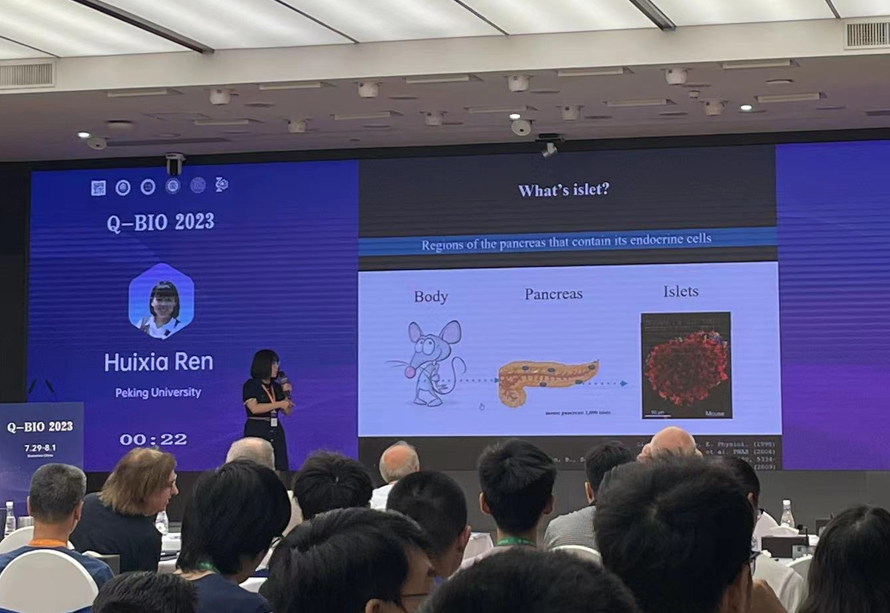
On July 29th, the 17th Q-Bio conference took place in Shen Zhen, China. Dr. Huixia Ren contributed to an oral presentation. The annual Q-Bio conference started from 2007 is an intimate and dynamic venue that brings together researchers who aim to advance predictive modeling and theoretical understanding of cellular and molecular biological systems in coordination with quantitative experimentation.
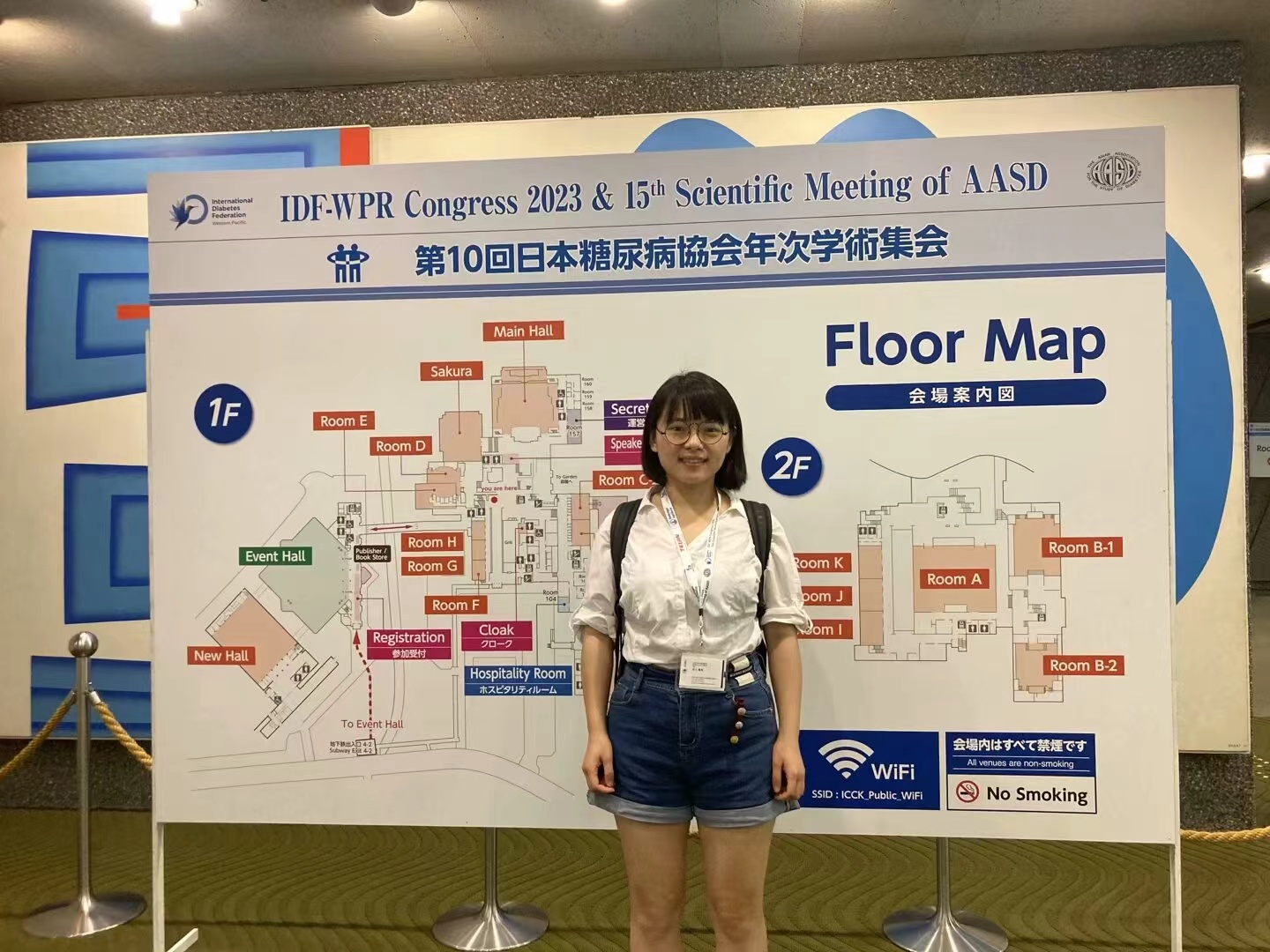
On July 21st, the IDF 2023 (International Diabetes Federation Western Pacific Congress 2023)/15th AASD (Asian Association for the Study of Diabetes) scientific meeting took place in Kyoto, Japan. Dr. Huixia Ren was invited to contribute a talk titled “Globally phase-locked alpha and beta cells.” This marked the first in-person meeting since the Covid-19 pandemic.
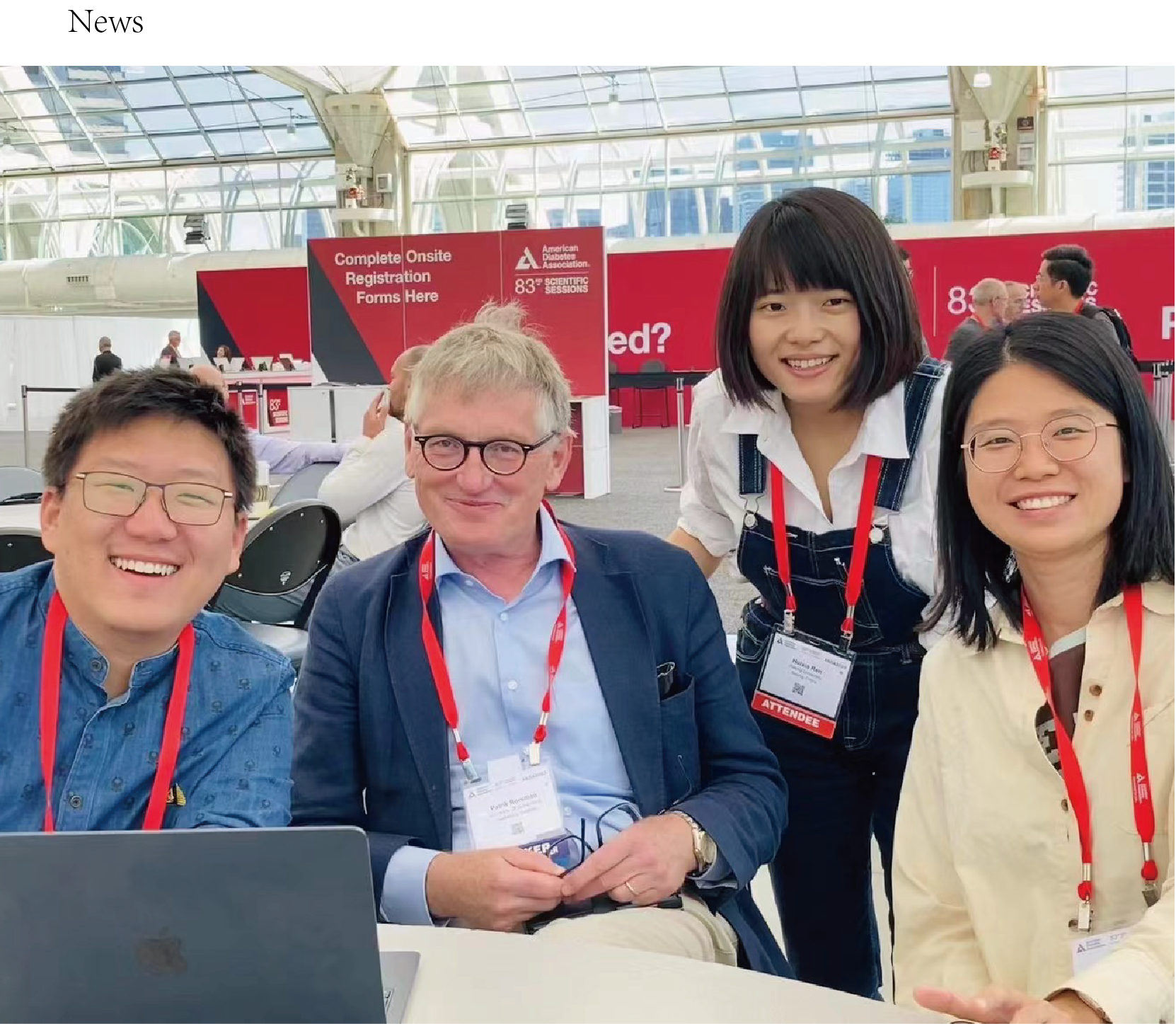
On June 21th, the 84th American Diabetes Association Annual Meeting was held in San Diego. Dr. Huixia Ren, Dr. Beichen Xie and Yi Yu attended the conference and communicated their research via posters sharing. The ADA’s Scientific Sessions, host to thousands of annual attendees, is the premier diabetes conference providing a platform to delve into the latest advancements in diabetes research, prevention, and care.
2022
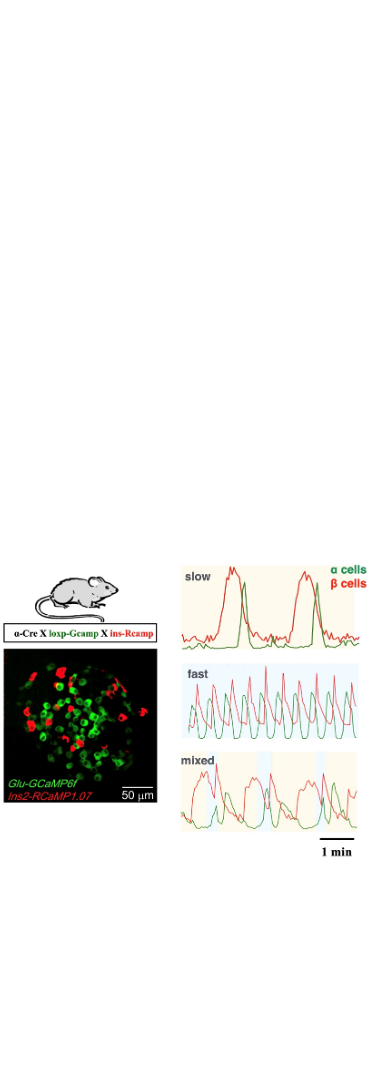
On June 28th, 2022, we released paper « pancreatic α and β cells are globally phase-locked» in Nature Communications(doi:10.1038/s41467-022-31373-6). The Ca2+ modulated pulsatile secretion of glucagon and insulin by pancreatic α and β cells plays a key role in glucose homeostasis. However, how α and β cells coordinate via paracrine interaction to produce various Ca2+ oscillation patterns is still elusive. To address this question, we combined microfluidic device, α and β cells specific labeled transgenic mice, fluorescence imaging and mathematical modelling. We found the oscillations of α and β cells were globally phase-locked. And the activation of α cells displayed a fixed time delay of ~20 s to that of β cells, β cells activated with a tunable delay after the α cells. As a result, the tunable phase shift between α and β cells set the islet oscillation period and pattern in both the model and experiments. Our study highlights the importance of paracrine interaction to generate various islet oscillation patterns. Huixia Ren, Yanjun Li, Chengsheng Han, and Yi Yu mainly contributed to the work. Prof. Chao Tang and Prof. Liangyi Chen supervised the study.
2021
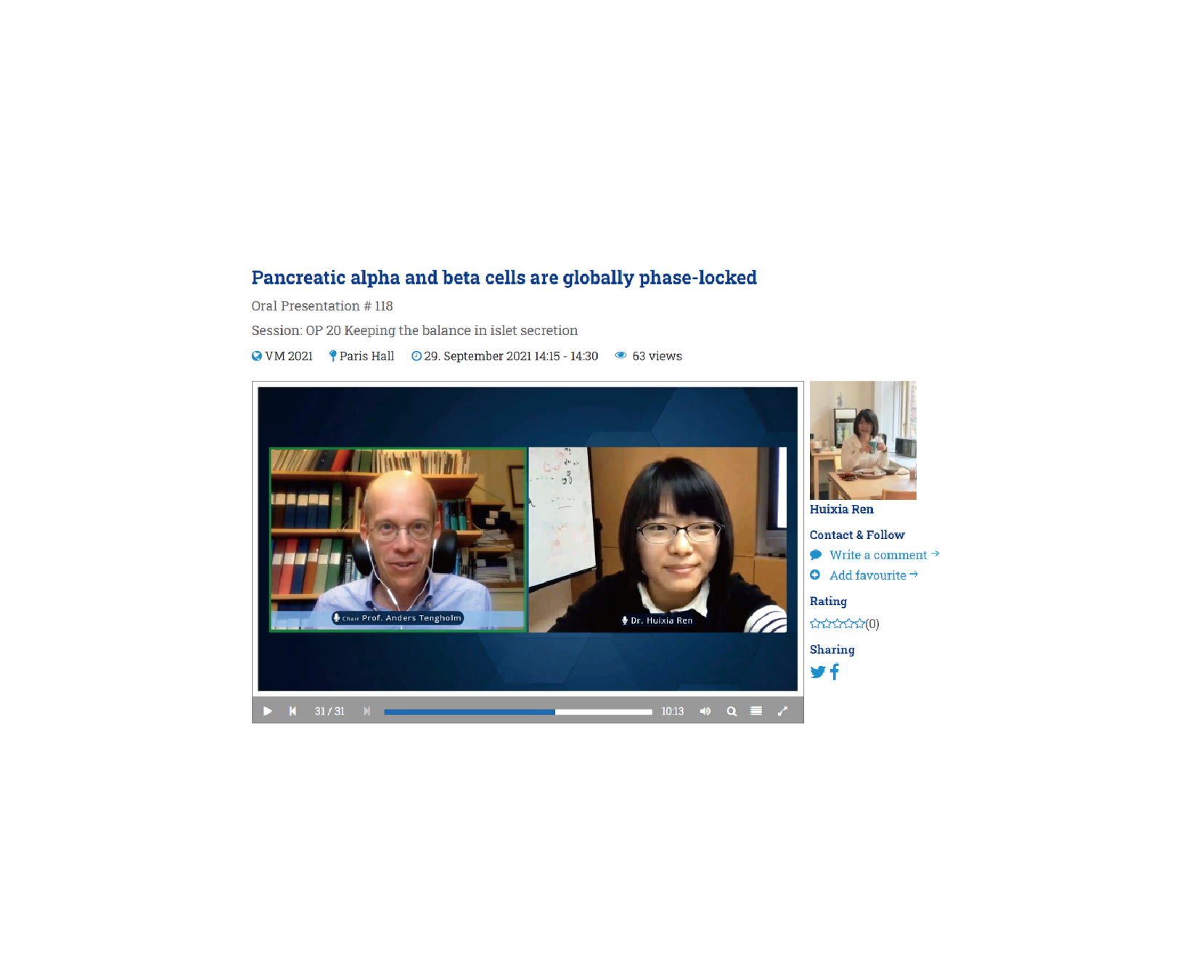
The 57th European Association for the Study of Diabetes Annual Meeting (EASD) of the American Diabetes Association in 2021 was held online from September 27th to October 1st. The conference showcased the research progress in the field of diabetes. Ren Huixia gave an oral presentation “Pancreatic alpha and beta cells are globally phase-locked “in the Keeping the balance in islet secretion session “. During the conference, Professor Anders Tengholm host the discussion session. Presentation: https://www.easd.org/media-centre/home.html#!resources/b-pancreatic-alpha-and-beta-cells-are-globally-phase-locked-b
2018

Prof. Erik Gylfe and Prof. Anders Tengholm from Department of Medical Cell Biology, Uppsala University visited Center for Quantitative Biology (CQB) and Tang Lab from the 9th to the 13th of April, 2018. During their visit, they gave two seminars about pancreatic islet hormone secretion and the mechanisms behind. They also experience Chinese culture and food, and shared with students some “old” stories about the islet study.
